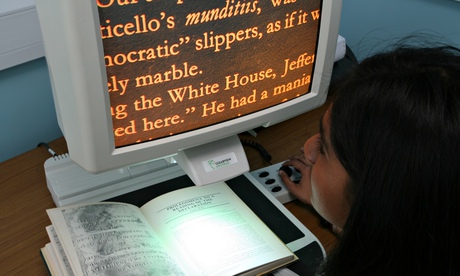
Come A-level results day, some students will find their results are not what they expected, and they can no longer take up the university place they planned. Thousands will find a new place through the Ucas Clearing system – some 57,000 students did so last summer.
There are lots of things to bear in mind when applying to a course you'd not considered before, from location to degree content – but what if you also have a disability or learning difficulty to take into account?
Every university has to comply with the equality act, explains Rachel Challinor, student life support manager at Salford University. This means, whatever your needs, all institutions will have a team of experts ready to provide support. But Challinor advises that before signing up to a degree programme, students should do their research to see exactly what's on offer.
"Find out how the course is actually taught and think about whether it will suit your particular learning style – the same course may be taught in very different ways across institutions."
She recommends that wherever possible students visit the campus to see first-hand if the facilities can accommodate their needs: "Is the library service accessible? Can you get ebooks? Check out the student union: is there a disabled students group? What emotional support is on offer?"
It's also important that students contact the university disability team as soon as possible, says Barbara Furnival, deputy head of disability services at the University of West England (UWE). "They shouldn't hesitate to talk to us and see what's available – whatever their disability, we've probably dealt with it before over the years."
UWE reserves specially adapted rooms – for example, rooms suitable for students with hearing impairments – for applicants entering through Clearing.
Tailored support
The type of support students require will vary greatly according to their specific disability – and some provisions will take longer to put in place, she adds. "We don't tend to get wheelchair users coming in through Clearing, but we could do – and we'd support them if we did."
Once students have selected a course, they are advised to apply for Disabled Students' Allowance (DSA), a pot of money that helps pay for any additional costs that might be incurred as a result of their disability.
DSA assessments can take months to complete, says Furnival, who adds that applications should be sent off promptly. "If students get in touch, we can help guide them through the process.
"We also have funds available which means that we can put interim support in place until their DSA comes though. Students don't need to think that they'll arrive and there'll be no support in place."
Case study: Michaela Hollywood, 24, public relations graduate from the University of Ulster
I was born with spinal muscular atrophy – a rare genetic muscle-wasting condition that limits my movement. As a result, I am a full-time powered wheelchair user and need help with simple tasks, like signing a piece of paper. Studying at university was always the obvious choice – it gives me a better chance at a secure future - but I had to be super organised and think about everything I needed ahead of time.
In the run-up to university, I had meetings with course directors, visited lecture theatres, and discussed exam preferences. I had my personal assistant (PA) funded and appointed two months before I started, and met her the day I had my place confirmed. The Muscular Dystrophy Campaign's Trailblazers report on higher education was helpful as I could read about other young disabled students' experiences.
Throughout my undergraduate degree I had permission for my PA to attend class and get notes when I was in hospital, and she provided me with the normality and stability that a non-disabled student enjoys.
It was undoubtedly a tough uphill climb, but being a university student has taught me how to be an independent individual, manage my disability better and how to co-ordinate all the services I need.
In preparing to go to university, get to know the support team around you, make your lecturers and module co-ordinators your best friends, and enjoy the ride.

